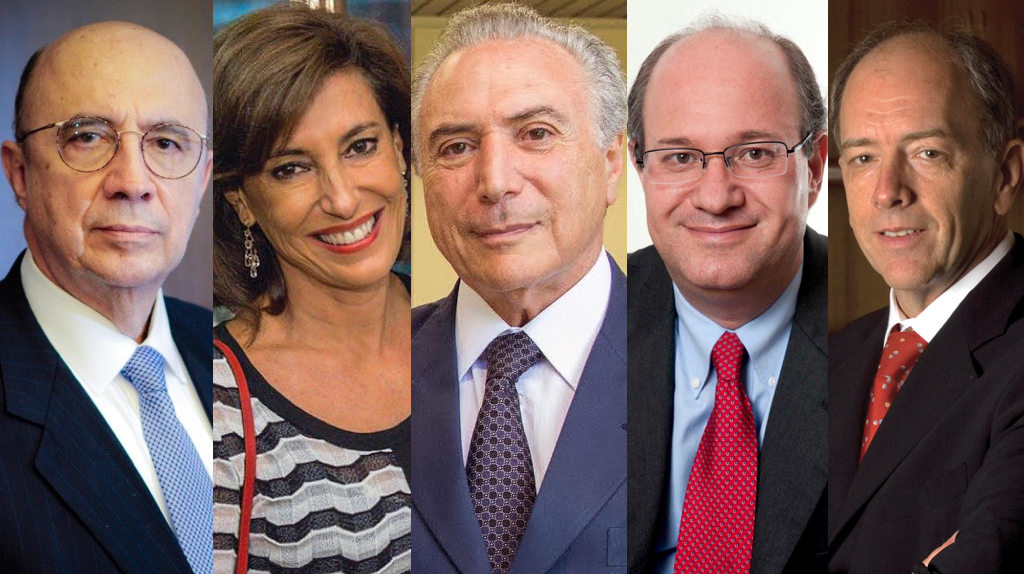“We need to reconstruct the pillar of the Brazilian economy and strengthen our business environment.”
Brazilian President Michel Temer, May 12th 2016
Little more than two weeks has passed in Brazil since Dilma Rousseff was suspended from office and Acting President Michel Temer has already gathered chief experts across business and finance to lead the country’s political institutions. This new team of industry heavyweights, while signalling a promising departure from the frivolous policies of the leftist Worker’s Party (PT), has the necessary experience to boost confidence and restore growth in Latin America’s largest economy.
In his first move as President, Temer elected Henrique Meirelles as Finance Minister to face some of Brazil’s more pressing economic challenges. A former Director of the Central Bank during Luiz Inácio Lula da Silva’s presidency, Meirelles oversaw Brazil’s monetary policy during one of the largest economic booms in the country’s history. He has begun his term as Finance Minister by proposing a Constitutional Amendment that would grant decision-making autonomy to the Central Bank and eliminate government intervention in fiscal policy making. Economists around the world have already welcomed this move. With his appointment, fiscal discipline has quickly become the watchword.
Brazil’s new leadership from left to right: Henrique Meirelles, Maria Silvia Bastos, Michel Temer, Ilan Goldfajn and Pedro Parente
Temer has also nominated MIT-trained economist Ilan Goldfajn as the next head of Brazil’s Central Bank in further efforts to increase investor confidence. Currently the Chief Economist for Itaú Unibanco, the largest private sector bank in Brazil, he already has experience in this government position during the presidency of Fernando Henrqiue Cardoso. Most famed for his contribution to Brazil’s Real plan that tamed the currency’s hyperinflation in the late 90s, he has valuable experiencing consulting on fiscal policy for the World Bank, the International Monetary Fund and the United Nations.
Brazil’s New Dream Team
Source: Wall Street Journal (2016)
Other nominations that have taken place over the last few days include Maria Silvia Bastos Marques to lead Brazil’s state development bank BNDES and Pedro Parente as the head of state oil company Petrobras.
The trend has been surprisingly clear – remove any members of the leftist Workers’ Party responsible for Brazil’s recent economic malaise from government and replace them with industry experts who have the knowledge, respect and experience to steer the country towards impressive and long-lasting economic growth.
What Does this Mean for Brazil?
We are pleased to see that the new government has acknowledged the need for wide-ranging reforms that will cause a significant shift to the political right in Brazil. A return to more responsible monetary policy, facilitated by the center-right leanings and private sector experience of Temer’s new Cabinet, will allow Brazil to get back on track and realize its enormous potential. With a sufficiently tight stance from the Central Bank, the tide will turn for inflation, the government will return to running a primary surplus and the Real will inevitably strengthen. These policies will also enable Brazil’s growing middle class to re-emerge as a key driver for consumer demand in the country. All of these factors will come to fruition at a time that benefits us all as co-investors in our projects while they move towards productivity.
Considering the uncertainty that prevailed for much of Rousseff’s second tenure, it is easy to forget that for nearly two decades Brazil has not only managed to maintain its democratic system, but also achieved macro-economic stability, reduced poverty, inequality and unemployment, achieved a serious credibility in the eyes of developed economies and has become a model for emerging democracies not only in Latin America, but also in Asia and Africa. There are challenges ahead, but this time of political transition will be the necessary catalyst for further positive change and development in Brazil.

